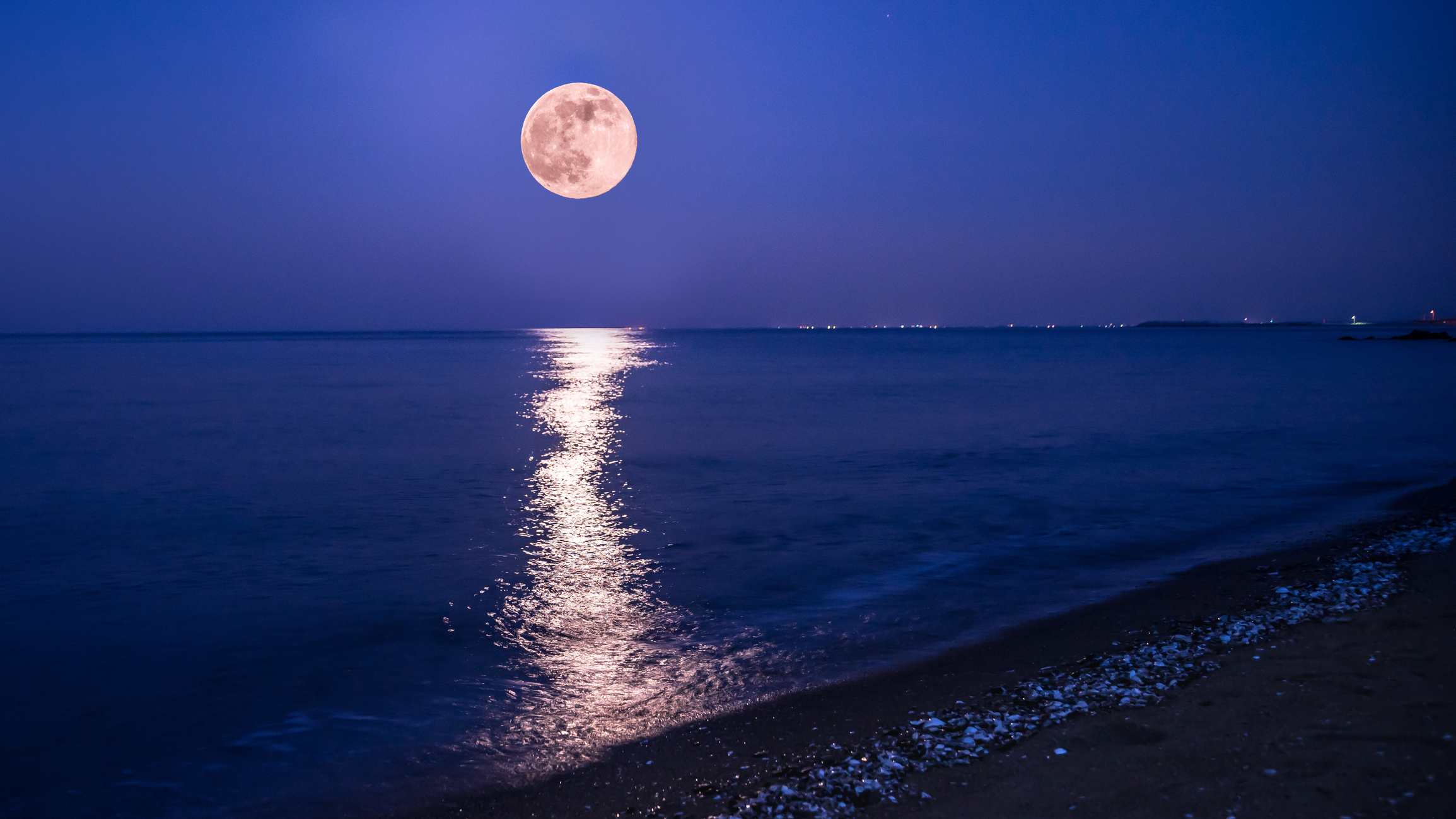How to see Wednesday's 'pink moon'


A free daily email with the biggest news stories of the day – and the best features from TheWeek.com
You are now subscribed
Your newsletter sign-up was successful
April's "pink moon" will make its annual reappearance on Wednesday night, but it won't be pink like the name suggests. Rather, the moniker is simply in reference to the herb "moss pink," which blooms in spring, NASA explains. Other names for the phenomenon include "Sprouting Grass Moon, the Egg Moon, and among coastal tribes, the Fish Moon, as this was when the shad swam upstream to spawn."
The orb will reach peak illumination just after midnight on Thursday morning and will mark the first full moon of spring. It will be visible in both the Northern and Southern hemispheres and can also be seen toward the east on Wednesday evening and toward the west before sunrise on Thursday morning, according to EarthSky.
The full moon "presents a special opportunity to see a beautiful moon and start looking at the moon as it goes through its phases," Dr. Noah Petro, chief of NASA's planetary geology, geophysics, and geochemistry lab, told CNN. "I encourage people to dust off their binoculars or telescopes to look closely at the moon, try to see the different colors (the light and dark regions), and recognize that those differences reflect different compositions of rock." He added: "When people look at the moon, I want them to think of not just of it as a nearby neighbor in space, but of the moon being like the eighth continent of the Earth."
The Week
Escape your echo chamber. Get the facts behind the news, plus analysis from multiple perspectives.

Sign up for The Week's Free Newsletters
From our morning news briefing to a weekly Good News Newsletter, get the best of The Week delivered directly to your inbox.
From our morning news briefing to a weekly Good News Newsletter, get the best of The Week delivered directly to your inbox.
To really get in on the fun, NASA suggests onlookers don "suitably celebratory celestial attire," as well as "enjoy the spring flowers, consider acts of charity, be welcoming and leave an extra seat at the table, and avoid starting any wars."
A free daily email with the biggest news stories of the day – and the best features from TheWeek.com
Devika Rao has worked as a staff writer at The Week since 2022, covering science, the environment, climate and business. She previously worked as a policy associate for a nonprofit organization advocating for environmental action from a business perspective.
-
 Switzerland could vote to cap its population
Switzerland could vote to cap its populationUnder the Radar Swiss People’s Party proposes referendum on radical anti-immigration measure to limit residents to 10 million
-
 Political cartoons for February 15
Political cartoons for February 15Cartoons Sunday's political cartoons include political ventriloquism, Europe in the middle, and more
-
 The broken water companies failing England and Wales
The broken water companies failing England and WalesExplainer With rising bills, deteriorating river health and a lack of investment, regulators face an uphill battle to stabilise the industry
-
 NASA’s lunar rocket is surrounded by safety concerns
NASA’s lunar rocket is surrounded by safety concernsThe Explainer The agency hopes to launch a new mission to the moon in the coming months
-
 Nasa’s new dark matter map
Nasa’s new dark matter mapUnder the Radar High-resolution images may help scientists understand the ‘gravitational scaffolding into which everything else falls and is built into galaxies’
-
 Moon dust has earthly elements thanks to a magnetic bridge
Moon dust has earthly elements thanks to a magnetic bridgeUnder the radar The substances could help supply a lunar base
-
 How Mars influences Earth’s climate
How Mars influences Earth’s climateThe explainer A pull in the right direction
-
 The ‘eclipse of the century’ is coming in 2027
The ‘eclipse of the century’ is coming in 2027Under the radar It will last for over 6 minutes
-
 NASA discovered ‘resilient’ microbes in its cleanrooms
NASA discovered ‘resilient’ microbes in its cleanroomsUnder the radar The bacteria could contaminate space
-
 Artemis II: back to the Moon
Artemis II: back to the MoonThe Explainer Four astronauts will soon be blasting off into deep space – the first to do so in half a century
-
 The mysterious origin of a lemon-shaped exoplanet
The mysterious origin of a lemon-shaped exoplanetUnder the radar It may be made from a former star
